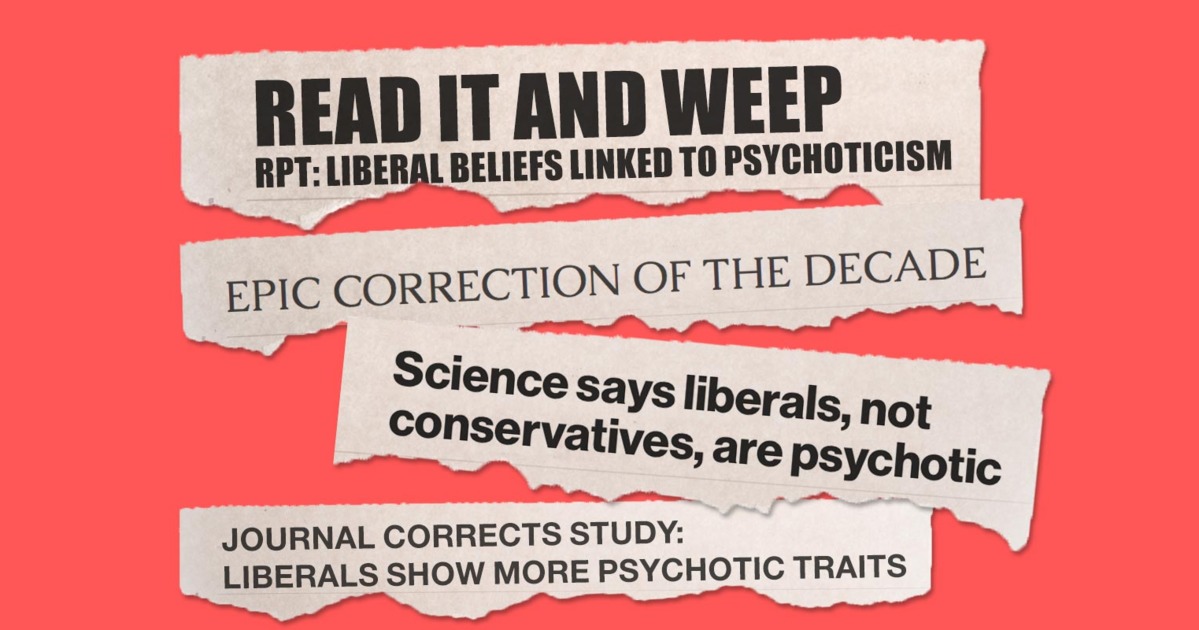Kerby Anderson
A number of months ago, the American Journal of Political Science issued a correction to a previous study. What was the error? The Journal reversed its conclusion that conservative individuals exhibited traits associated with “psychoticism.” They admitted that the interpretation of the coding was exactly reversed. In other words, it was liberal individuals, not conservative individuals, that exhibited these traits. As one commentator put it, “That’s one heck of an oops.”
This finding made quite a splash in technical journals. For example, the publication Retraction Watch had the headline, “Conservative political beliefs not linked to psychotic traits, as study claimed.” It reported that researchers have fixed a number of papers that mistakenly reported that people with conservative beliefs exhibit traits associated with psychoticism, such as authoritarianism and tough-mindedness.
One article that appeared in The Cut tries to answer a very important question: “Why it took social science years to correct a simple error about psychoticism.” A PhD student in psychology at the University of Minnesota concluded that the authors had simply inverted the items in the survey.
Although the article helps explain how the error began, it doesn’t really spend much time talking about why it took so long to discover the error. Is it possible that the erroneous finding that conservatives exhibit these traits was not discovered because it reinforced the bias most liberal researchers in psychology already have?
On most college campuses, there is a prevailing view that conservatives are rigid, intolerant, and closed-minded. And there is also the view that liberals and progressives are flexible, tolerant, and open to new ideas. But if you spend any time at the major universities, you will often see just the opposite.
 Listen Online
Listen Online Watch Online
Watch Online Find a Station in Your Area
Find a Station in Your Area










 Listen Now
Listen Now Watch Online
Watch Online
